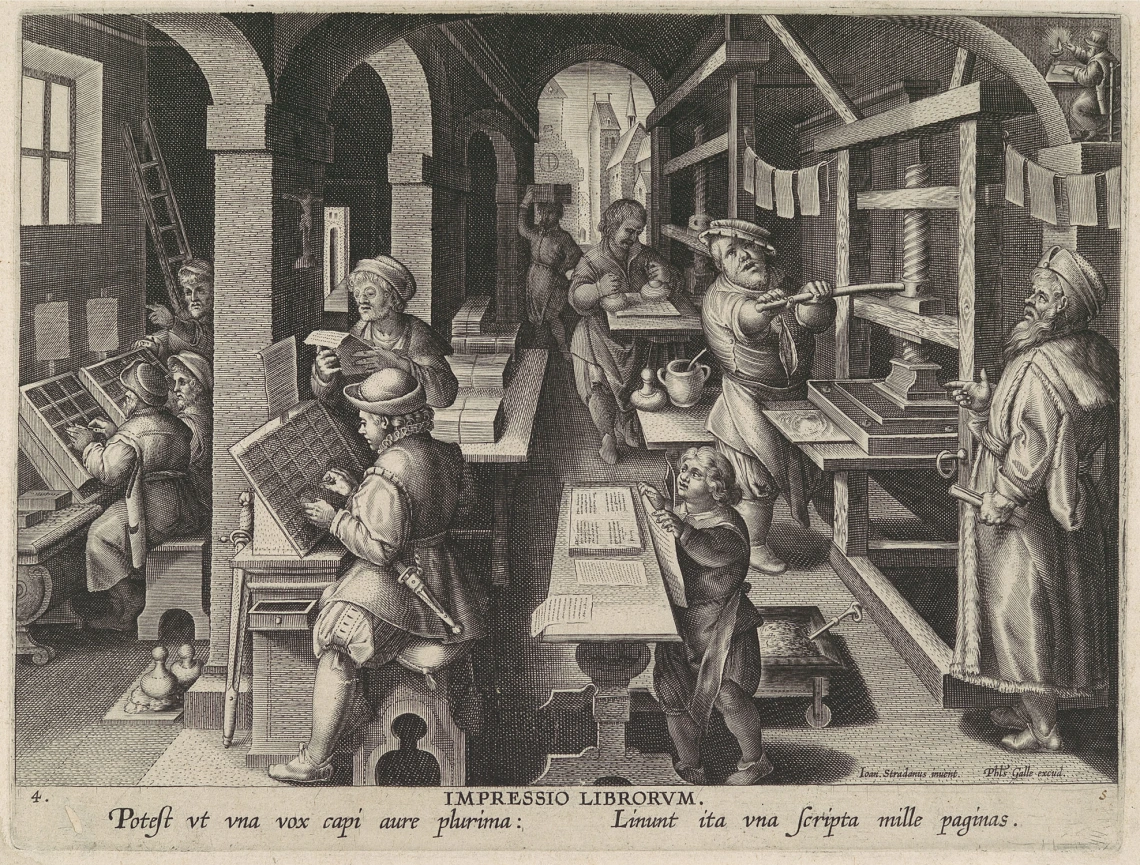
"New Inventions of Modern Times, The Invention of Book Printing, plate 4," engraved by Jan Collaert I, after Jan van der Straet
When
Where
Special Collections hosts the Early Books Lecture Series XIII, an annual lecture series where University of Arizona scholars explore the treasure trove of medieval texts held by the University Libraries. In this 13th year of the lecture series, professors will give their audiences new insights into centuries-old historic texts.
When the Puritans closed all the theaters of England in 1642, the playwrights, actors, costume designers, and other theater professionals were thrown out of work. But the drama did not entirely end. Instead, playwrights found patrons among members of the aristocracy, who gave them a home and encouraged them to write. Other dramatists wrote surreptitiously and had their (short) plays performed in town squares and other temporary locations. What connects these plays is their hostility toward the Puritans and their Parliamentary allies.
Frederick Kiefer is University Distinguished Professor, where he teaches Elizabethan and Jacobean drama. His publications include English Drama from “Everyman” to 1660: Performance and Print (Arizona Center for Medieval and Renaissance Studies, 2015) and Shakespeare’s Visual Theatre: Staging the Personified Characters. (Cambridge University Press, 2003).
The Early Books Lecture Series is free and open to the public. The schedule includes:
- April 5, 6:00–8:00 p.m. Albrecht Classen, “Albrecht Dürer – The Grand Master of the Sixteenth Century from Nuremberg, Germany”
- April 19, 6:00–8:00 p.m. Tom Willard, “The Witches in Macbeth”
Please note that some audiovisual content within our digital collections and exhibits is temporarily unavailable as we prepare to migrate it to a new platform.
If you missed Dr. Kiefer's talk, you can listen online.
